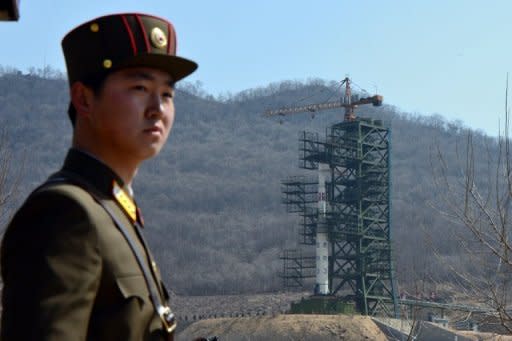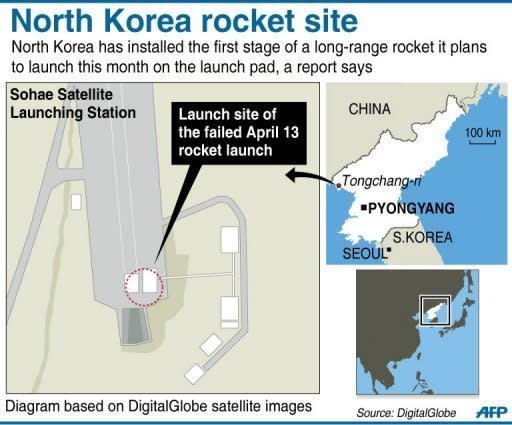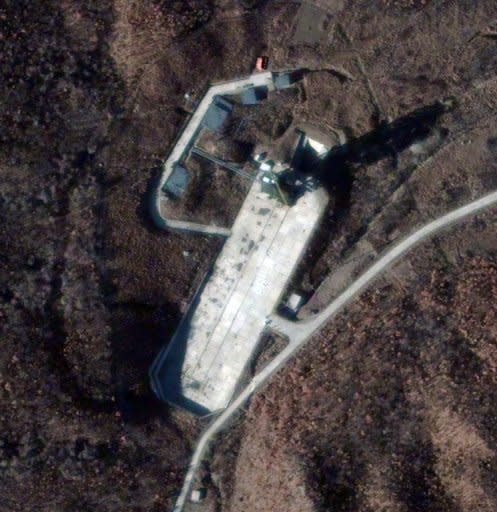North Korea installs rocket on launch pad: report
North Korea has installed the first stage of a long-range rocket it plans to launch this month in position, defying growing international calls to cancel the mission, a report said Monday. North Korea announced Saturday that it would carry out its second long-range rocket launch this year between December 10 and 22. The United States and its key Asian allies South Korea and Japan have condemned the launch as a disguised ballistic missile test that violates UN resolutions triggered by Pyongyang's two nuclear tests in 2006 and 2009. The first stage has been placed in position at the North's Sohae satellite launch station, a South Korean government source told Yonhap news agency. The source said it was expected to take three or four days for North Korea to erect all three stages. There were also unconfirmed reports Monday, citing defence officials, that the South Korean military had detected signs that the North might be preparing live-fire artillery drills at bases near the disputed western sea border. Japan cancelled scheduled diplomatic talks with North Korea after the rocket launch announcement and has reportedly issued orders to shoot down the carrier if it strays into Japanese territory. North Korea insists it is a purely "peaceful, scientific" mission aimed at placing a polar-orbiting earth observation satellite in orbit. In a notification to neighbouring countries, Pyongyang said the launch timing would be between 7:00am and midday (2200 GMT and 0300 GMT) on any day in the given window, Yonhap quoted a foreign ministry official as saying. According to the notice, the first stage would fall into the Yellow Sea off the Korean peninsula's west coast and the second would come down in the sea some 190 kilometres (120 miles) east of the Philippines. The North's last rocket launch, in April, ended in failure with the carrier flying for just over two minutes before breaking up and falling into the Yellow Sea. South Korea's chief nuclear envoy Lim Sung-Nam met with ambassadors from China, Russia and Japan in Seoul on Monday to discuss the planned launch and how to respond. China, the North's closest ally, has expressed "concern" at the launch plan, with the foreign ministry urging "relevant parties (to) act in a way that is more conducive to the stability of the Korean peninsula". Russia on Monday added its "regret" at Pyongyang's announcement and noted that North Korea was obliged to abide by UN resolutions. "We vehemently ask the North Korean government to reconsider the decision to launch the rocket," the Russian foreign ministry said. Lim Sung-Nam also plans to visit the United States on Tuesday for talks with his US counterpart, Glyn Davies, on how to respond to the rocket launch. The United States, China, Japan, South Korea and Russia are all involved in the stalled six-party talks with North Korea on its nuclear weapons programme. Pyongyang walked out of the negotiations in April 2009, a month before it carried out its second nuclear test.




